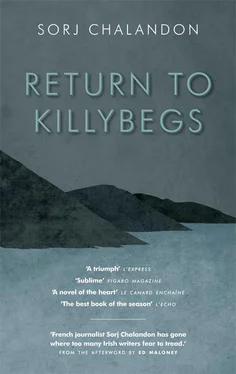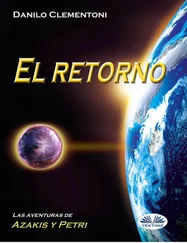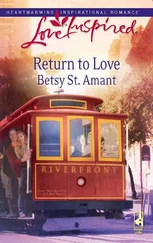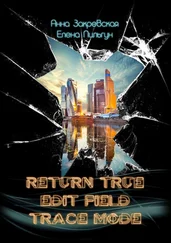
One morning, very early, Uncle Lawrence came with his chimney sweep’s truck. It was 15 April 1941, two days after Easter. My mother had said we would go to Mass in Belfast the following day.
Belfast. I was frightened by that big city, that other country. Lawrence was like Mother, but with a coarse voice. A harder expression, too. But what stood out most was how silently he lived. He rarely spoke, never swore, didn’t sing. Lips, for him, were the doorway to prayer.
He counted my brothers and sisters as though listing off sheep to the buyer at market. It was a beautiful day, it wasn’t raining, there wasn’t even a threat of rain. The sea breeze came gusting into the house. We barely took anything with us. Not the table, the bench or the dresser, but we had the soup tureen from Galway that my grandmother had given to my mother. The mattresses were piled under the tarpaulin. Seánie, my mother and baby Sara were sitting up beside Lawrence, and the rest of us were crammed in the back, squabbling. An unsettling moment stuck in my memory. Mother was crying. She had closed the door and given it a kick. Then she asked her brother to make a detour so she could say goodbye to her husband.
We drove through the village. A woman crossed herself when we passed. Many others just kept walking. No friends or enemies, there was nobody to mourn or curse us. We were leaving our homeland and the homeland didn’t give a damn.
At the cemetery, our uncle dropped the truck’s tailgate. We walked towards the grave together, except for Sara who was left sleeping and Lawrence who stayed behind the wheel. Mother made us kneel down in front of the cross. And then she told my father that everything was his fault. That we’d never again have a roof over our heads or bread on the table. That she’d get sick and we were going to die one after the other, under the German bombs or the English bayonets. That she was truly suffering, that our cheeks were hollow and the edges of our eyes nearly black. She called on a woman smoothing gravel over her husband’s grave to witness.
— Do you see this, do you? Have you counted them? Nine! There are nine of them and I’m alone with the nine and not a soul to help me!
The woman cast her eye over our rabble and then she nodded in silence. I remember that moment because a seagull screeched. It was balancing in the wind above our heads, and it laughed at us.

I’d never seen an English uniform other than through my father’s hateful descriptions. The number of those soldiers he claimed to have taken by the scruff of the neck! To hear him tell it, half the king’s army had returned home with the mud from my father’s boot sole on their arses.
On the border with Northern Ireland, the British made us get out of the truck. I still didn’t know how to tell the Ulster Defence Volunteers from the Royal Ulster Constabulary or the Ulster Special Constabulary, those ‘B-Specials’ so loathed by my people. Lawrence didn’t utter a word, nor did my mother, as though some secret order forbade a Meehan or a Finnegan from addressing them. They were helmeted, their bunched-up trousers over their war boots.
The one who searched us had his shirt buttoned right up to the collar, a flattened helmet, a pack on his chest, his gun slung on his back and the bayonet my mother feared. It was the second time in my life seeing a British flag.
The first was 12 June 1930 in the port at Killybegs. The Go Ahead , an English steam trawler, made a stopover to repair some damage to the engine. It had two masts, dark-red sails and its chimney was belching black fumes. In under an hour, half the village was on the pier. I was five years old. I was holding Seánie’s hand, and my father was there, too. While the sailors lowered the gangplank, my brother made me read the boat’s registration, painted in white on the stern. I recognized the figures and I was proud. For a long time afterwards I even remembered the number — LT 534 — which I wrote down with Mother when we got home. Two harbour police went aboard carrying an Irish flag. The courtesy flag the captain had raised was stained and torn. So Killybegs offered them a brand-new Irish flag. It was hoisted on the front mast of the starboard. The police saluted the tricolour’s ascent. The crowd applauded noisily. Leaning against the bulwark, the English sailors smoked in silence. Their flag hung huge and lifeless behind, wrapped around its mast by our wind.

A long time ago, my father and his friends had burnt a Union Jack in our village square to celebrate the 1916 Rising. They had gathered in front of Mullin’s one Easter in honour of James Connolly, Patrick Pearse and all those who were shot. It had stopped raining. My father had given a speech, standing on a beer barrel with the furrowed brow and raised arms of an orator. He recalled the sacrifice our patriots had made and asked for a moment’s silence. Afterwards, a guy emerged from the crowd. He pulled a British flag from his jacket and my father set it alight with his lighter. It wasn’t a real flag. Not a flag made in England by the English. Ours was badly painted on the back of a white coat. The colour was running and spreading over the cross, but you could see what it was all the same. When it caught fire, everyone applauded. I was there. I was proud. I hit my hands together, imitating the crowd’s clapping. There were about fifty of us, and two gardaí who were keeping an eye on the gathering.
— For Christ’s sake! Don’t do that, Pat Meehan! Not their fucking flag! shouted the oldest man when my father set the fire.
— We’ll have trouble over this! someone else implored.
Ireland had been a free state for fifteen years, but people still thought the British army could come back over the border seeking vengeance.
The two guards ran across the square. My father and his friends shouted, ‘Grab the traitors!’ They were prepared to fight to defend the flaming flag. The women yelled and grabbed their children. And then Cathy Malone had a great idea. She took off her shawl, raised her head with brow bared, closed her eyes and launched into ‘Amhrán na bhFiann’, her fists pressed against her dress. Da and the others took off their caps, old soldiers standing to attention. The guards were flabbergasted. Stopped in their tracks by the first notes, they pulled themselves together as though summoned by a whistle. Stationary, side by side, they adjusted their belts with a thumb and lifted their fingers to the peaks of their caps. Not a sound could be heard: just our national anthem, our crystal pride, and Cathy Malone bawling her eyes out. The enemy flag was burning where it had fallen on the damp street, defied by a handful of patriots, a few women wrapped in shawls, ten children with grazed knees, and two gardaí in uniform. In my entire life, with all the huge commemorations and grandiose celebrations, I’ve never really recaptured the crude beauty and joy of that moment.

At the border, their flag was very small and worn. It was at half-mast, like washing hung out to dry. But this time it was a real one. And real British men. I had the impression that they were more smartly dressed than our soldiers. That might have been because they frightened me. Mother had told us to lower our eyes when they spoke to us, but I looked directly at them.
— Have you come to fight the Jerries? asked the soldier searching me.
— The what?
The fellow gave me a strange look. He had a weird accent, the same as Lawrence’s. He was a Northern Irishman slipped inside a British uniform. There was an insignia on his jacket, a harp surmounted by a crown.
Читать дальше













